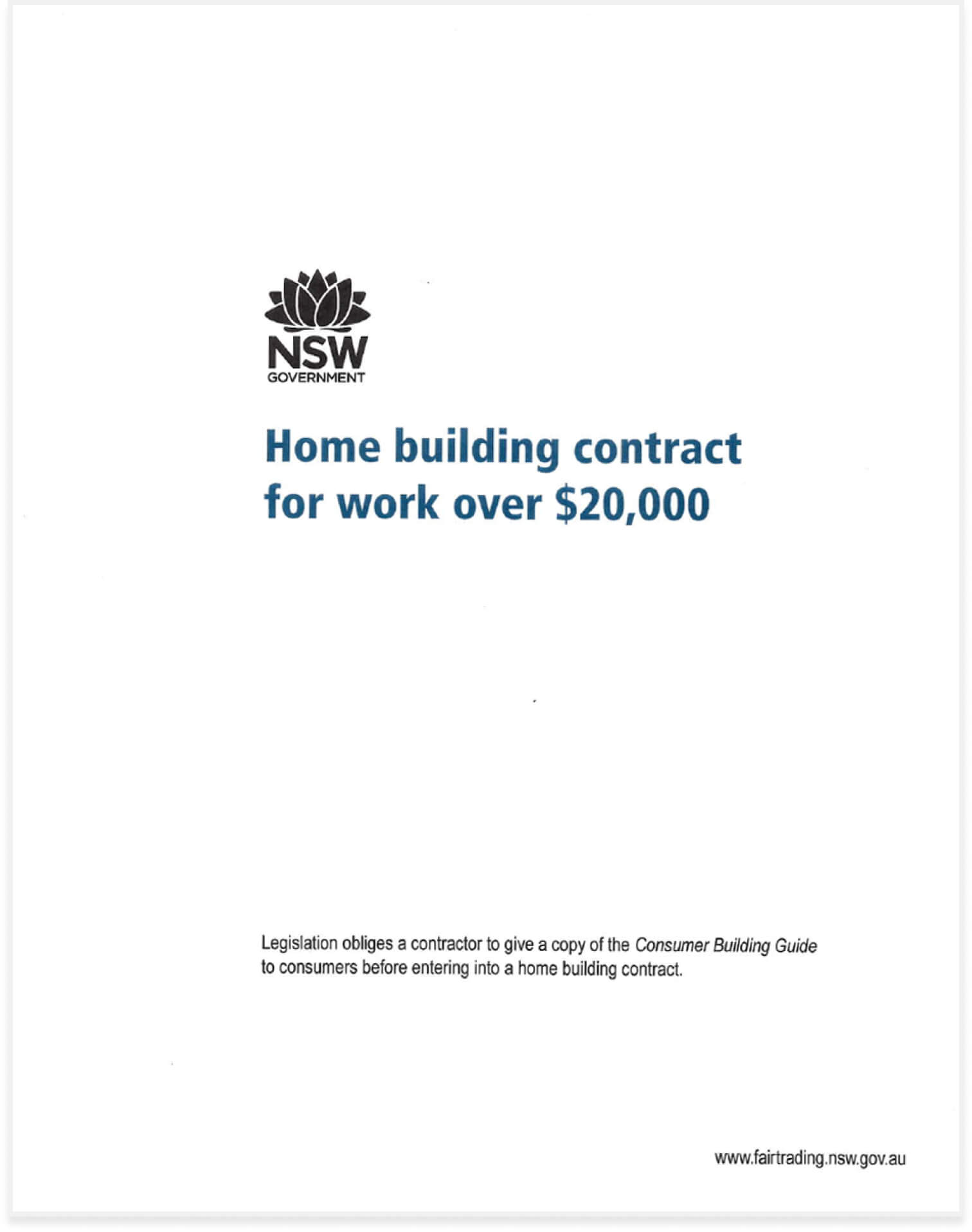
What is a defect?
A building defect may be anything from substandard quality in design and construction, faulty workmanship, or early deterioration in the works. Incomplete works are also considered a defect.
Your NSW Fair Trading Home building contract for work over $20,000 contains a clause listing the Statutory Warranties that a builder/contractor is required to comply with. If they violate any of those, that’s considered a defect.
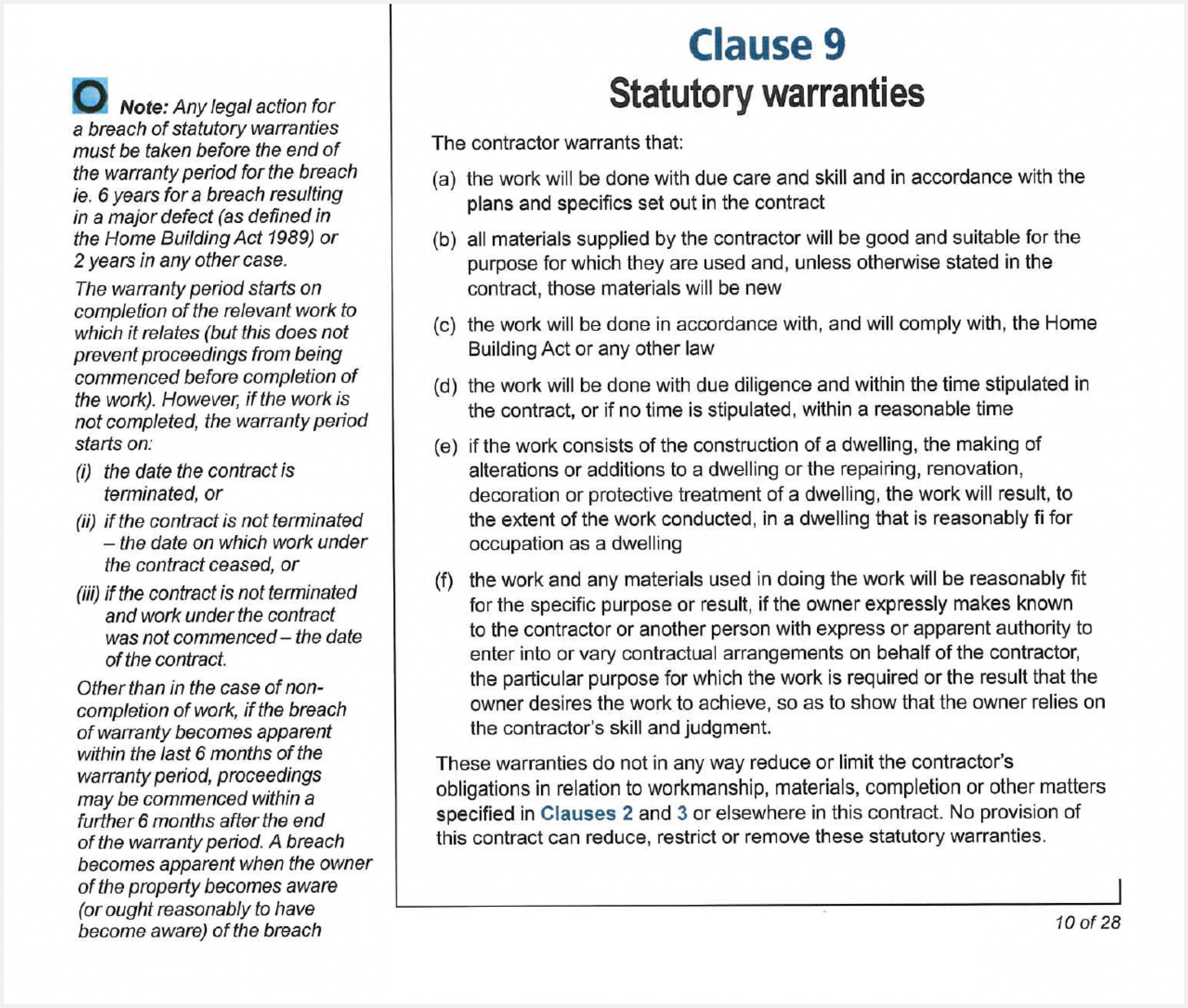
Statutory Warranties are imposed by law
They basically say that:
1. the building works should be:
- done with due care and skill
- in accordance with the plans and specifications
- done within the stipulated time (or within a reasonable time)
- reasonably fit for occupation as a dwelling
- good and suitable for the purpose (and new, unless otherwise stated)
When and how can you check for defects?
Completion of work
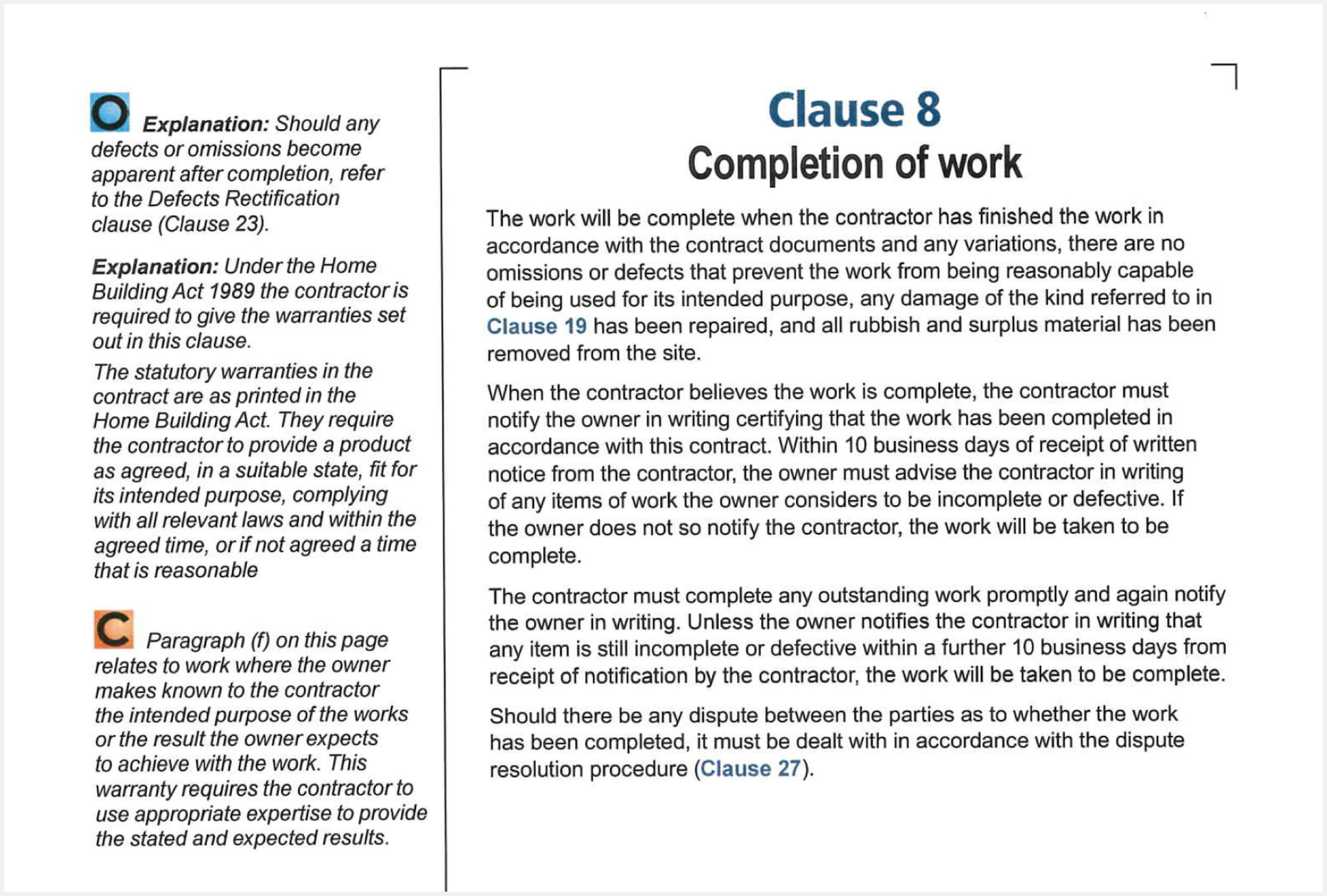
Once the builder/contractor believes the work is complete, they will notify you in writing. You will then have 10 business days to inspect the works and provide them with a list of defects and incomplete works.
Common home building defects
Notably, there are building defects that similarly occur in residential construction projects in NSW. From our research, we have identified the following to be the most commonly occurring defects for the past year:
- damage on the wall
- incomplete placement of roof
- incomplete work involving doors
- damaged doors
- uneven work for flooring
- damaged flooring
- messy work
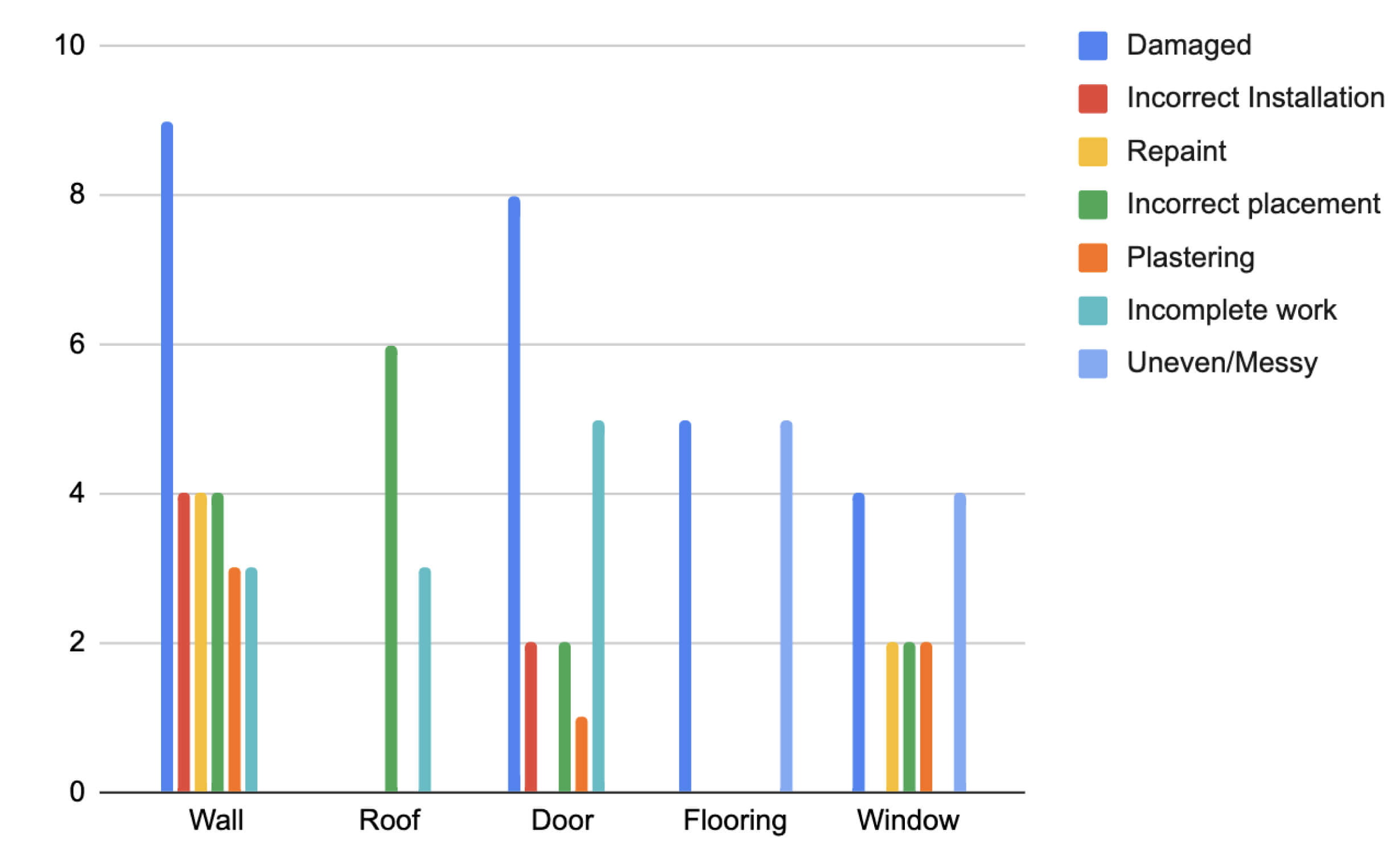
Rectifying the defects
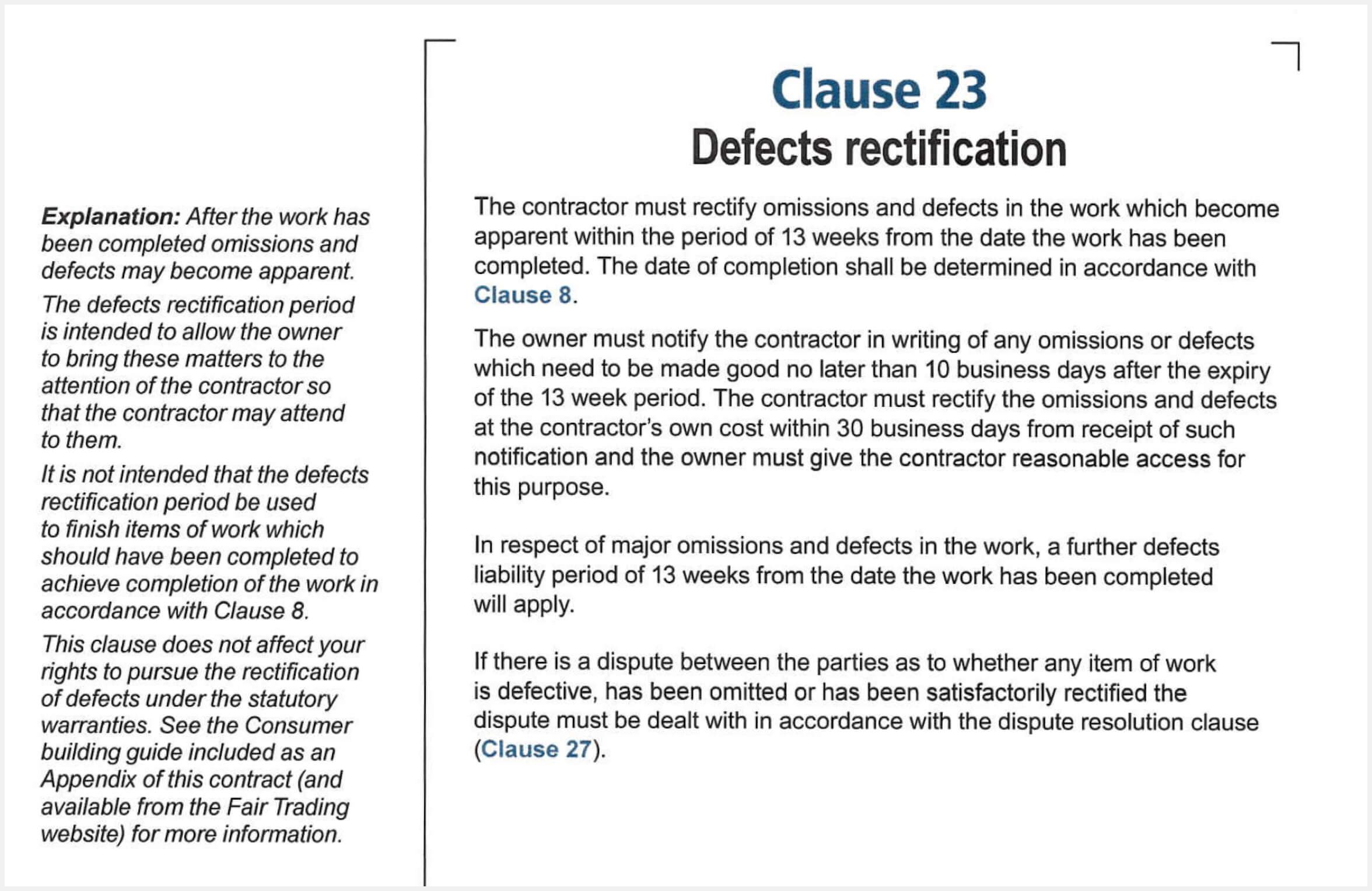
When defects turn into dispute
If the builder/contractor contests any item on your list, or for any reason refuses to rectify the defects or complete the incomplete works, you may take that as a dispute.
Clause 27 of the Fair Trading contract lays out the procedure of settling disputes, including those arising out of defects and incomplete works.
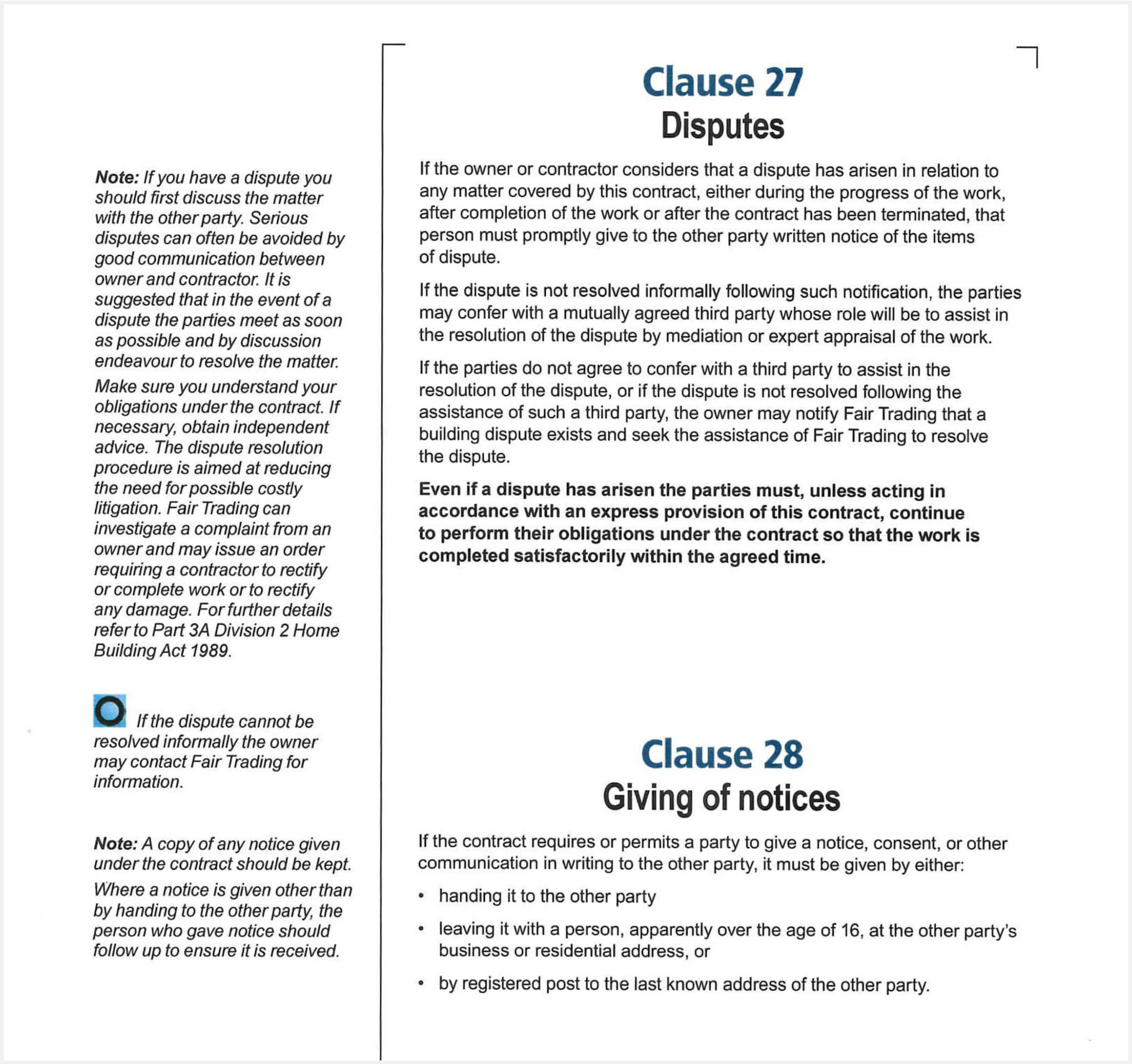
Dispute resolution typically involves the following steps:
1. Sending the other party a written notice of the items of dispute, followed by efforts to amicably settle the dispute internally.
2. Involving a third party to mediate, or engaging an expert to inspect the works, if the matter cannot be resolved internally.
3. Seeking the assistance of the Office of Fair Trading if the above two steps fail.
4. If the dispute still remains unresolved after taking it to Fair Trading, you will be given a certification to lodge a complaint with NCAT, where the matter will undergo directions hearings. A final hearing may be had where the disposition of the tribunal will be made.
5. You have further recourse with the courts if the above fail.
Related Content: Common Building Defects that you can Spot in your House
Get Expert Construction Contract Review and Advice
Get Your Fair Trading Contract Reviewed Now
Step 1: Simply fill out this form and upload your contract.
Step 2: We’ll review it and return to you with a fixed fee quote.
Minimise construction risks on cost, time, and quality.
Get Home Building Contract Review and Advice now.
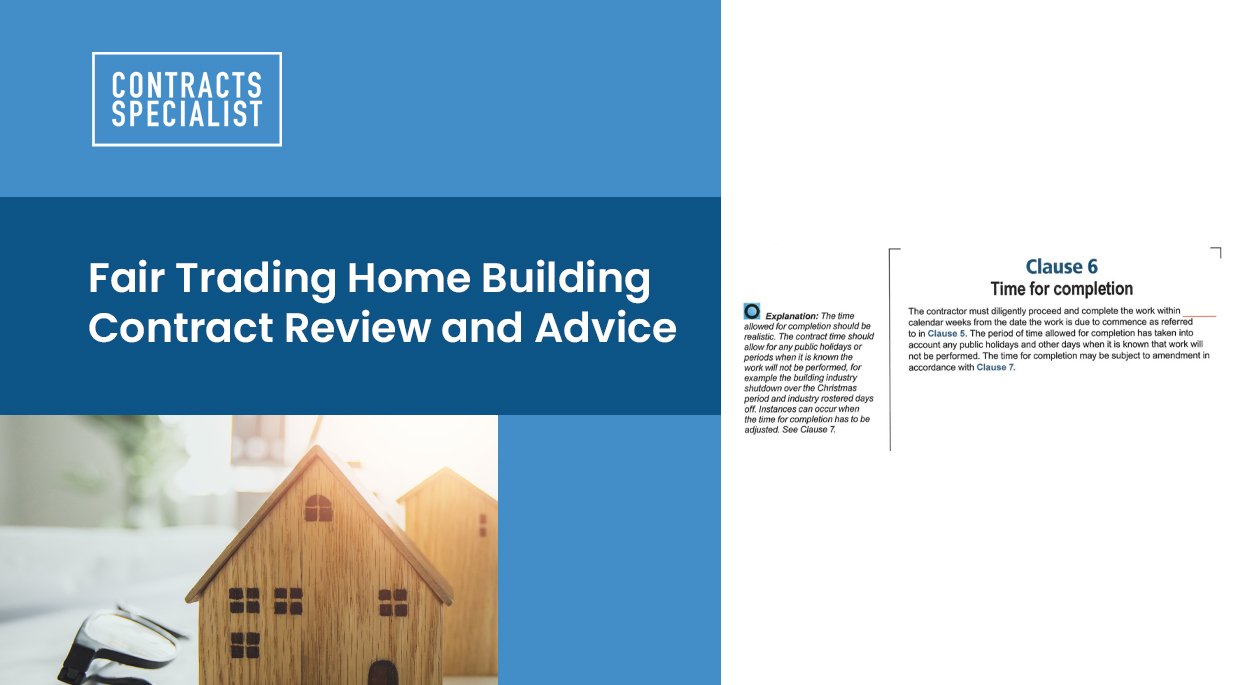
How we can help
The Office of Fair Trading’s contracts are homeowner-friendly, especially when compared to other standard form contracts. However, building disputes can still arise. Engaging a specialist construction lawyer for Contract Review and Advice not only allows you to manage your risks and administer your contract effectively, but also provides invaluable support should you find yourself in the midst of a building dispute.

If you’re facing challenges with defects or have concerns about your Fair Trading Home Building Contract, please don’t hesitate to email me directly. Alternatively, you can organise a call to discuss your specific needs with me, your dedicated construction lawyer. Secure your interests and ensure a smooth resolution to any disputes; reach out today.




